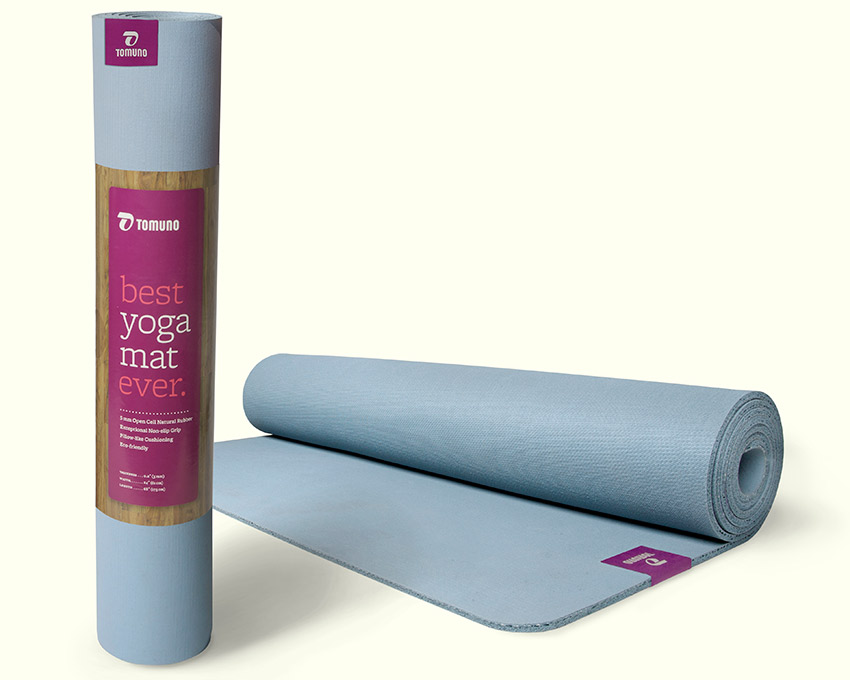Boston-Based Yoga Mat Company Growing Online

Photo provided.
Tomuno yoga mats want to be the best you’ve ever owned. The premium mat company (retails for $70) started in a Beacon Hill apartment in 2010 by Rob Beacon, a yoga loving guy with a day job in finance who could not find a yoga mat that he liked made from quality materials. Tomuno’s goal is “a bit geeky,” he says. “We try to use materials science to find the best materials solutions for specific yoga needs. Being in Boston we had access to PhDs in Materials Science from MIT.” He says the company is aiming to be the, “Warby Parker of the yoga mat world.” Their slogan is “the best yoga mat ever.”
Why are they so expensive? The mats are made with a natural rubber sap tapped from actual rubber trees. “It’s an expensive raw material but dominates the premium yoga mat category because it is the best,” Beacon says. “If you have two mats, one rubber and one plastic of the same thickness, because rubber is a denser material it provide a richer cushion.”
Beacon says that he didn’t start out looking to sell natural rubber yoga mats. “I did the reverse. I started out by testing every type of yoga mat (PVC, PER, TPE, Jute, Polyurethane, etc.) looking for the raw material that provided the best combination of grip, cushion, and durability,” he says. Beacon and his team hired an independent durability testing firm as well. “Natural rubber dominates the top of the yoga mat category because it is the best raw material. It’s more expensive to manufacture with than some plastics but it is worth it. This is why it commands such a price premium in the market among yogis.”
There’s debate in the yoga community about the optimal amount of cushion for a mat. Beacon says the best is a mat that is thick enough to protect knees without causing lateral instability. “Our mats are 5 percent thicker than our competitors which may not sound like a lot but we did a lot of testing. Anymore, and it is too thick,” Beacon says.
But these premium mats are specially made for unheated yoga. Why? Beacon says rubber provides grip against perspiration but that salt degrades rubber (and some plastics too). “In my opinion, there is no yoga mat raw material out there that can reliably sustain grip for 100 percent of yogis in hot yoga. You need a hot yoga towel. So just buy a cheap mat and cover it with a hot yoga towel.”
Beacon’s next goal is for Tomuno to produce the best hot yoga mat, ever. “But we have not yet found a material that meets our personal standards for grip and salt resistance,” Beacon says.
You can find Tomuno mats on their website, on Fab.com and at the Sports Club/LA in Boston.


